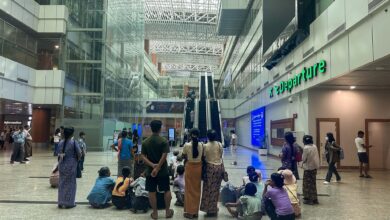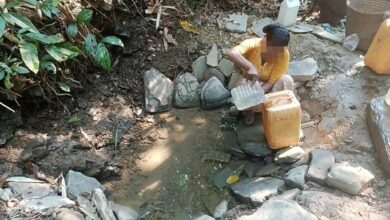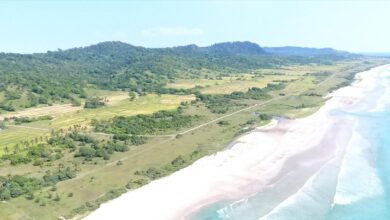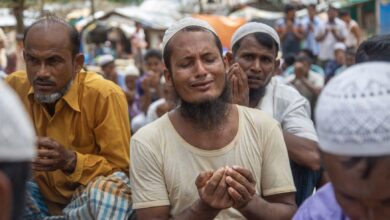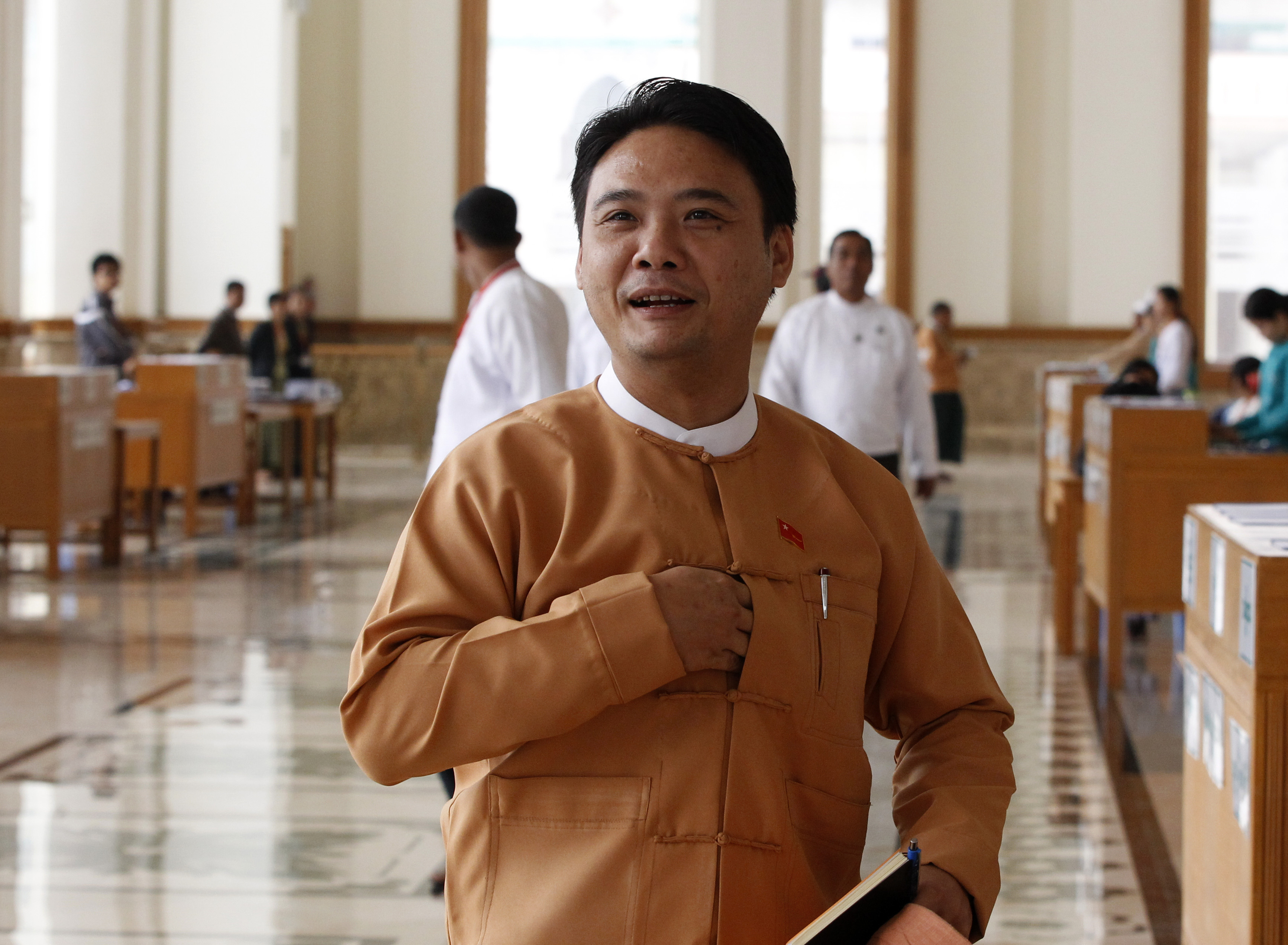
Retired doctor Khin Win May, 76, was in high spirits on the afternoon of July 22 as she got ready to see her son, a prisoner in Yangon’s Insein Prison, for the first time in months. To make his days there a little more bearable, she was preparing some dried food to bring along with her on her visit—enough to last him a good long while.
She had not expected to have a chance to see him again anytime soon. Her son, former MP Phyo Zayar Thaw, 41, was a political prisoner on death row, and a prominent opponent of the country’s military junta. It was through her daughter, who had been released in May after being detained for more than a year for working with the US-based Open Society Foundation, that she was informed of this rare and precious opportunity.
The prison authorities had contacted her daughter and said that one of the prisoner’s parents would be allowed to see him that day. She was instructed to be at the prison gate by 6pm. She arrived promptly on time.
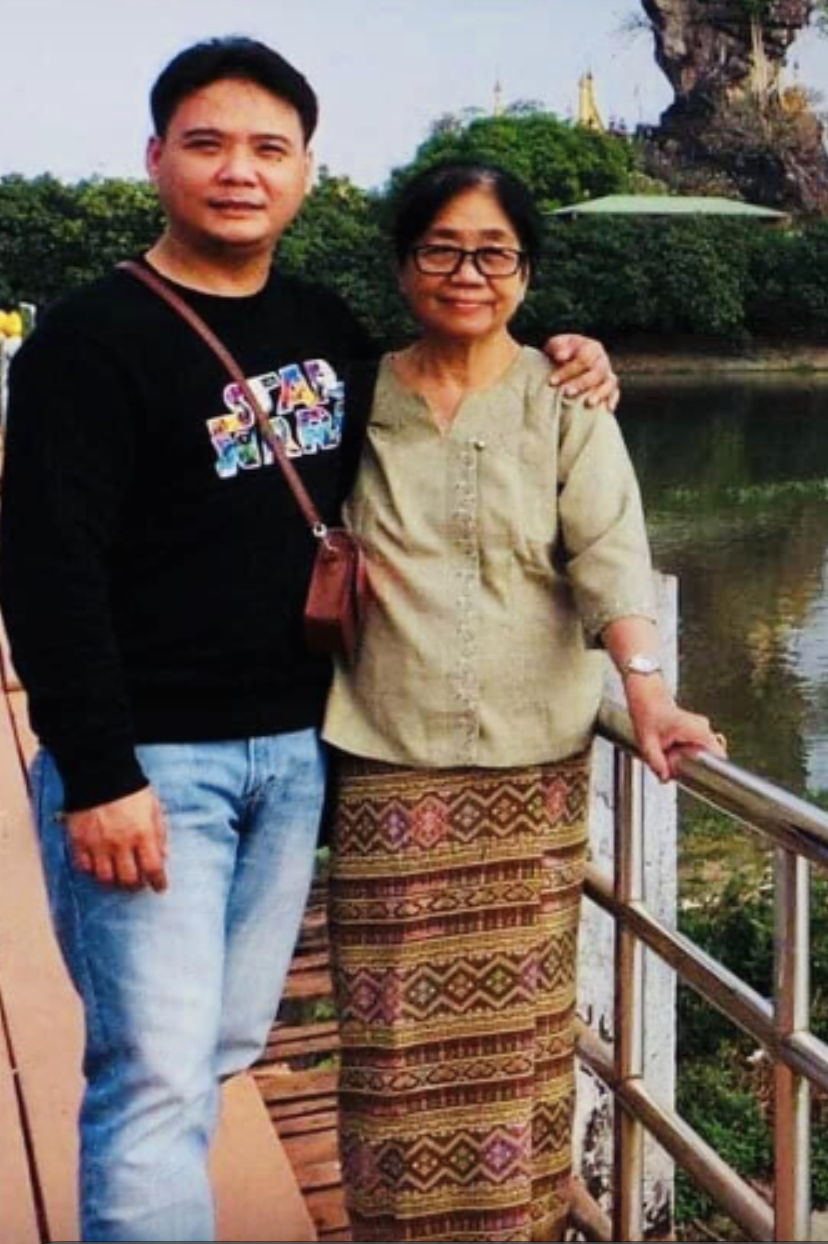
After 30 minutes of waiting, a vehicle arrived to pick her up and take her to the main building inside the prison compound. Then she was taken to a room guarded by five prison staff. It was here that she would be allowed to see her son—on a video monitor.
Phyo Zayar Thaw appeared on the screen in the orange shirt worn by all death-row prisoners.
“When he saw me, he asked me how I was doing. He said I looked well,” Khin Win May recalled of the start of their 20-minute conversation.
‘We were both so happy’
She was relieved to see that he also looked healthy. Images of him published at the time of his arrest last November showed him looking defiant but exhausted. Accused of plotting to carry out attacks on regime targets, his capture had been treated as a major win by the junta, and as a low point for the resistance movement that had emerged in the wake of last year’s coup.
Khin Win May also noticed that one of the prison staffers present was taking notes of everything they said. This was an intrusion, but at the time, she was so grateful for this chance to see her son that she didn’t really mind the lack of privacy.
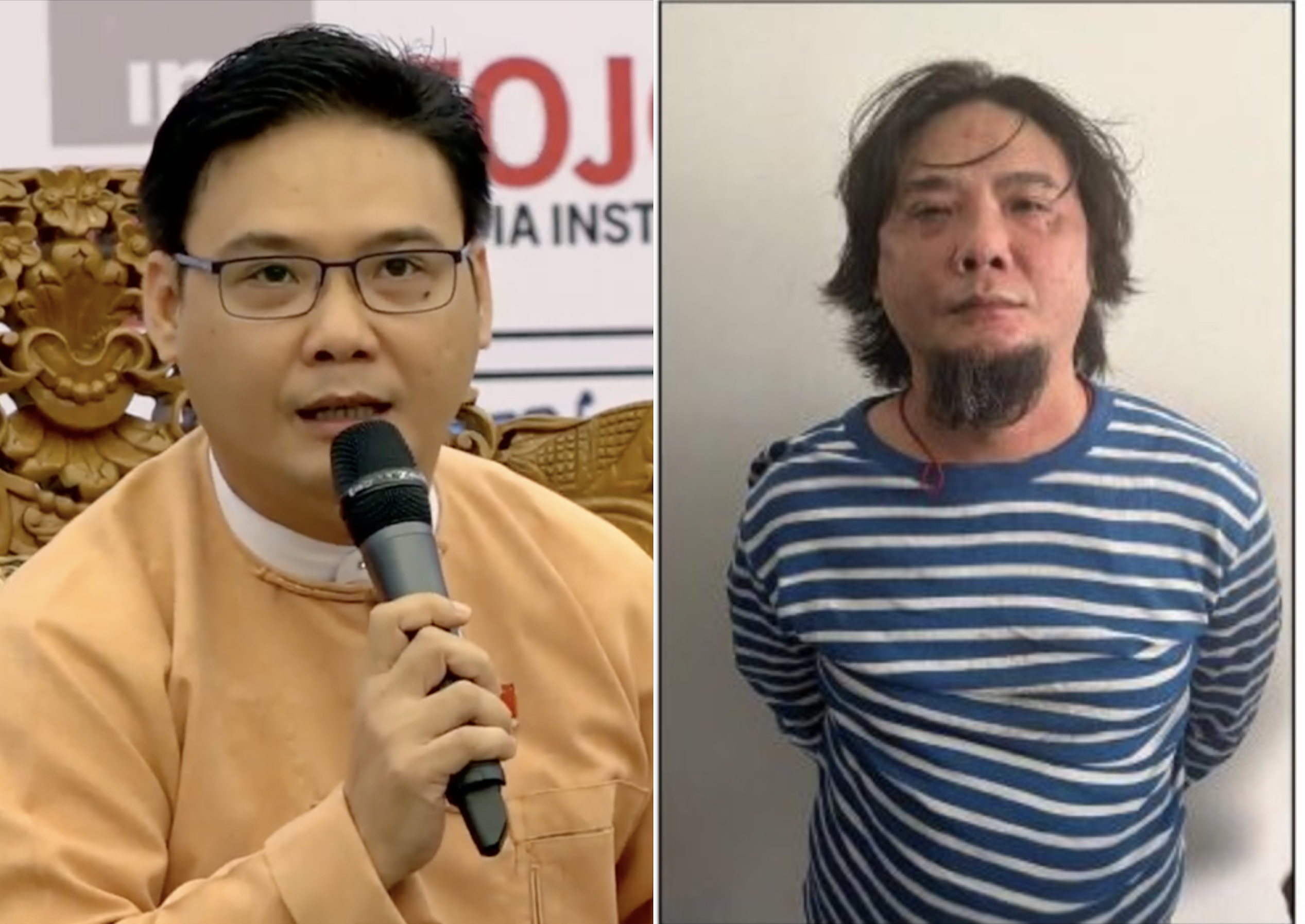
Before the visit had even ended, they were both looking forward to the next one. In anticipation of that occasion, Phyo Zayar Thaw said he had a few requests to make.
“Mom, there are some things I’d like to ask you to bring when you visit next time,” he said. What he wanted were his reading glasses, an English dictionary, and a few specific titles from among the books he had at home.
She explained that she wouldn’t be able to bring the books from home because his house had been sealed off since his arrest; but she assured him that she would find new copies of the books he asked for.
We thought we would have another chance to meet, so we were very happy
With that, the visit ended. It was not until three days later, when the junta announced that Phyo Zayar Thaw, along with veteran activist Ko Jimmy and two men convicted of killing military informants, Hla Myo Aung and Aung Thura Zaw, had been executed, that she realised she would never see her son again.
“He didn’t seem to know, and neither did I,” she said of the executions. “We were both so happy. We thought we would have another chance to meet, so we were very happy.”
Powerless and alone
Myint Myint Than also knows how it feels to lose a son without warning. A day after Khin Win May’s visit, she, too, was allowed to see her son, 27-year-old Aung Thura Zaw, via a video monitor inside Insein Prison. Like Phyo Zayar Thaw’s mother, she also had no idea that her son would be dead by Monday.
Sentenced to death for allegedly killing military informants in Yangon’s Hlaing Tharyar Township in March of last year, Aung Thura Zaw was the youngest of the four condemned men executed over the weekend.
The pain is unbearable for me as a mother. I wish I had some way to express it

Myint Myint Than recalled that he seemed to have filled out a bit since she had seen him last. He looked fit, and had even grown a moustache, which she boasted to her neighbours made him look even more handsome.
But the news of his death so soon after this encounter came as a crushing blow. It left her feeling utterly powerless and alone.
Desperate for answers, and to claim her son’s body, she went to her local ward authorities for help.
“I asked them if I could get his body back, and all they said was that everything had already been done and that it wasn’t possible to do anything else,” she said.
“The pain is unbearable for me as a mother. I wish I had some way to express it. But I really can’t find the words to describe my pain,” she added.
Aung Thura Zaw also left behind a wife, Ma Htet, who was two months’ pregnant when her husband was arrested. She had no chance to see Aung Thura Zaw at all before his execution, which took place before their son would ever get to see his father.

No last meeting
Even though three of the four executed activists were able to see loved ones before they died, no one from Hla Myo Aung’s family was contacted by the prison authorities for a meeting.
Mya Hlaing, his 74-year-old father, said he only learned about his son’s execution after the news became widespread.
“Even now, I can’t believe he’s gone. I can’t believe it, because I never got to see his body,” he told Myanmar Now.
Hla Myo Aung was moved to Insein Prison only after he was sentenced to death. Before that, he was held in the prison in Taungoo, in Bago Region. He left behind two children, aged 16 and 20, and his wife, who is serving a sentence in Mon State’s Kyaikmayaw Prison for her anti-junta resistance activities.

Before the coup, he earned a living as a trishaw driver, and was also known for his skill in playing billiards. Like Aung Thura Zaw, he did not have a history of engagement in politics.
Unlike previous periods of political unrest in Myanmar, the current situation has gripped virtually every sector of society, resulting in unprecedented levels of mass resistance. The regime has responded by killing thousands and arresting many more.
According to the Assistance Association for Political Prisoners, nearly 12,000 people are currently being held in Myanmar’s prisons for opposing the regime. Of these, 117 have been convicted of capital crimes, including the four who were recently executed.
Despite the national outrage and international outcry over the executions, which were the first in Myanmar in more than three decades, the junta has shown no signs of backing down on its use of brutal force against its opponents, raising fears of more executions in the near future.
Reporting by Myanmar Now staff. Writing by Tin Htet Paing.
